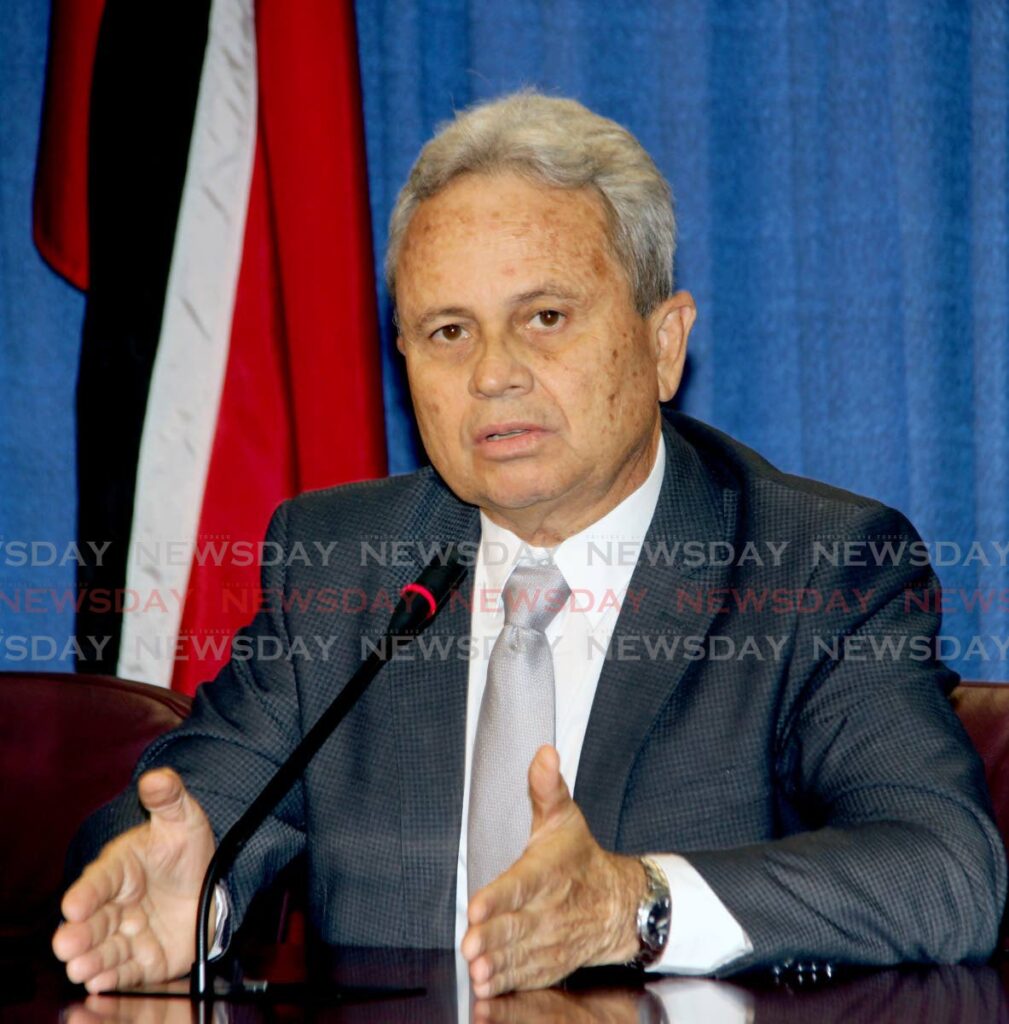Better late than never

BY ANY standards, the loss of US$913 million from the country’s sovereign wealth fund is a matter the public has a right to be concerned about. This is so whether the loss took place yesterday or whether it took place last year.
But don’t take our word for it.
Heed, instead, Minister of Finance Colm Imbert.
“When you are looking at your sovereign wealth fund and you are seeing it decreasing in value, as a minister of finance I have to become concerned,” Mr Imbert admitted towards the end of a nearly two-hour media conference called by the Government on Monday to address a range of issues, including reports relating to the 2022 performance of the Heritage and Stabilisation Fund (HSF).
Mr Imbert used the event largely to criticise a newspaper report on the HSF, saying the report was outdated.
He revealed the fund had increased by US$754 million over the last nine months and stood at US$5.466 billion as of June 9. He also noted, correctly in our view, the fact that sovereign wealth funds fluctuate over time and that it is only natural for volatile and unpredictable global events to affect the performance of investments.
The minister brought figures suggesting some funds around the world fell in 2022 by US$900 billion and cited examples from Norway, Saudi Arabia and China.
But if there was nothing unique about the performance of this country’s HSF in 2022, that does not change the fact that for the first time since its inception, the fund has recorded a loss.
There was, and remains, a duty on the part of the Government to account properly to the population at the earliest opportunity.
When Mr Imbert tabled the HSF’s annual report in Parliament on February 3, he took less than a minute to do so. On that day, MPs were more focused on dealing with another historic item on the agenda: the nomination of this country’s first female commissioner of police, Erla Harewood-Christopher.
If Mr Imbert was at the time concerned about the contents of the report, he did not show it.
Neither did the Prime Minister, who on Monday suggested he closely watches the fund’s performance, going as far as to look at Bloomberg every day to gauge US market movements.
Whether or not the fund should have made a loss is a separate matter from the curious approach to accountability taken in relation to its performance.
Government officials may not have wished to cause unnecessary alarm, and indeed Mr Imbert said he was advised simply to wait it out.
But ironically, in accusing the media of cherry-picking how and when facts are reported, our leaders have reaffirmed the perception that it is actually politicians who are the masters of doing that.


Comments
"Better late than never"